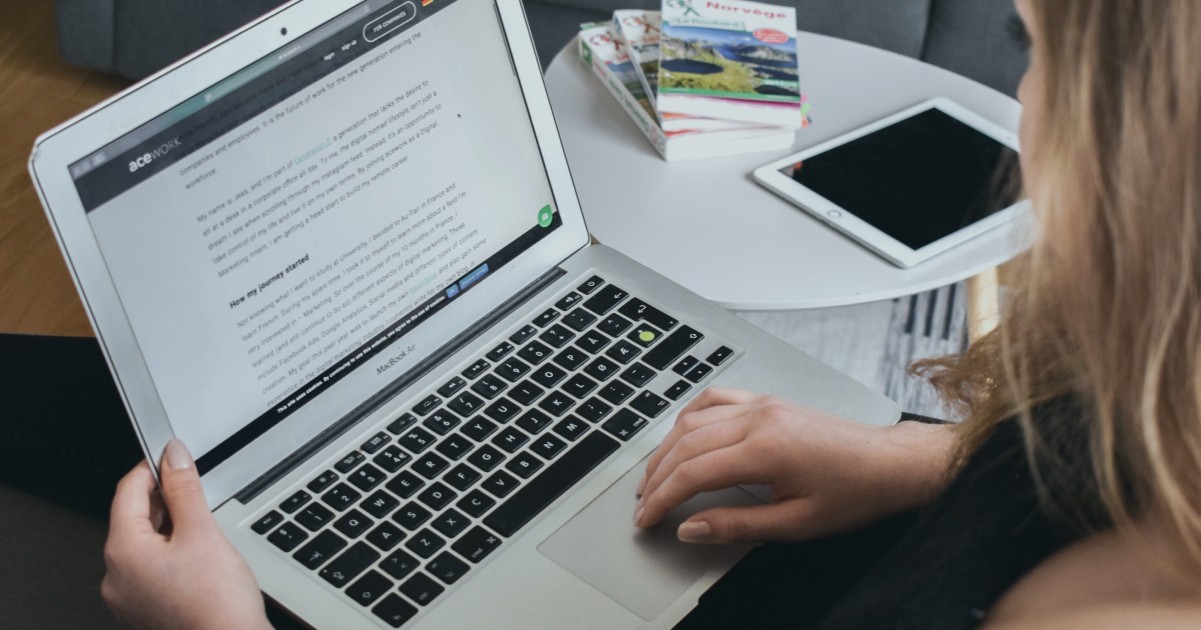
How to Avoid Plagiarism as a Freelance Writer
If you are a freelance writer or want to become one, you need to know how to avoid plagiarism. Whether intentional or not, plagiarism is a bad practice that can have dire consequences for your career.
This post will tell you all you need to know about plagiarism: what it means, why you should avoid it, and how to make sure you never plagiarize someone else’s work.
What Is Plagiarism?
Plagiarism happens when someone takes another person’s work or ideas and presents them as their own. It can be intentional or unintentional:
- Intentional plagiarism involves knowingly using someone else’s work without seeking permission or including proper citations. Intentional plagiarism is committed with the intent to mislead.
- Unintentional plagiarism, on the other hand, is not intended to mislead. It tends to occur when an individual has poor research and writing practices. For example, they might not have managed their references properly or sufficiently understood a particular citation style. It may therefore be unclear what work is theirs and what has been taken from an external source.
Unfortunately, plagiarism is common in many industries. And it’s not just freelance writers who have to avoid plagiarism. Any kind of material can be plagiarized – words, original ideas, designs, products, music, etc.
To help you avoid it in your writing, here are some examples of what constitutes plagiarism:
- Taking someone else’s writing (passage or full text) and publishing it under your own name
- Copying and pasting something from the internet without properly citing the author
- Not providing (or doing so incorrectly) references and citations
- Not using quotation marks correctly
- Incorrectly paraphrasing another author’s ideas
- Using another author’s exact words in your writing without proper acknowledgment
Why Should You Avoid Plagiarism?
It is extremely important to avoid plagiarism as a freelance writer.
As a freelancer, you’re responsible for developing your personal brand and finding work. Part of this involves building a portfolio that demonstrates your knowledge and expertise in a particular area. Your portfolio helps you build authority and credibility in your niche and secure clients. Even one occurrence of plagiarism in your portfolio can seriously damage your reputation. If a client agrees to work with you based on your portfolio and then discovers it contains plagiarized work, they are likely to end the working relationship.
Similarly, if you produce well-researched and original content, your clients are likely to give you positive reviews and testimonials. You may even secure repeat work with them. But if they find that your work has been plagiarized, they may leave you a negative review. Negative reviews can prevent potential clients from working with you, thus limiting your opportunities for new jobs. Not only can plagiarism damage your reputation, but it can also harm your client’s business.
Depending on how severe the plagiarism is, you can even face punishments or fines. In academia, plagiarism can be penalized by a failing grade, loss of funding for research, and even being fired or expelled.
In the professional world, plagiarism can negatively affect your reputation. You can lose money from canceled contracts, and your clients may take their business elsewhere. More severe cases of plagiarism can even lead to legal and financial consequences or charges for copyright infringement.
Even if you never get caught, it’s still wise to avoid plagiarism. You want to take pride in your work and grow your skills as a freelance writer, which is not possible if you are stealing someone else’s words and ideas.
How to Avoid Plagiarism in Content Writing
If plagiarism worries you, you can relax. Luckily, avoiding plagiarism is simple. All you need to do is correctly acknowledge any words, ideas, or data you’ve used when they belong to someone else. If you’re unsure how to do this, keep reading to learn some of the best practices you can implement as a freelance writer to make sure your work is plagiarism-free.
1. Do as Much of Your Own Research as Possible
When doing your research, make sure you write original notes and put everything into your own words before you start your actual writing.
Looking at as many sources as you can is better than only using a couple. Having notes written in your own words from many different sources will make it less likely that you will be stealing specific words or ideas from someone else.
As a freelance writer, knowing how to research properly, take insightful notes, and manage your references are valuable skills.
2. Don’t Copy and Paste
While it’s tempting to copy and paste information while researching, this can be dangerous. If anything you’ve copied makes it into your final draft verbatim, you can be guilty of plagiarism. As mentioned above, write notes and make sure to put everything into your own words.
3. Reference/Cite All Your Sources
There is nothing wrong with including other people’s ideas in your work, as long as you acknowledge them.
Not only will citing sources avoid plagiarism, but it can also help legitimize your work. When your readers see the list of sources you have included, they will know you have taken the time to research thoroughly and are knowledgeable enough to speak on the given topic.
In-text, footnote, and endnote citations are all acceptable methods of recognizing your original sources. If you find that you can’t express your idea any better than the original author, it is acceptable to directly quote them as long as it is formatted properly.
4. Paraphrase
If you really want to avoid including references or quotations, you can always paraphrase the original. To paraphrase something, simply take the thought or idea you want to use and rewrite it in your own words. In this way, you have the opportunity to express the idea in a clearer way.
You do need to be careful, though. If you paraphrase incorrectly, you may be plagiarizing unintentionally. You must reword and format your writing in an original way and avoid using words or phrases that were included in the source. If you don’t feel comfortable doing this, just include a citation as mentioned above to avoid plagiarism.
5. Use Plagiarism-Detection Software
As a last resort, you can always consider using a trusted plagiarism checker once you are nearly finished with your writing. There are free and subscription-based software available and lots of options. If you are especially concerned, you can even consider using more than one.
Becoming A Freelance Writer
If you want to become a freelance writer or improve your skills if you are one already, try signing up for our Becoming A Freelance Writer course. It will teach you how to write blog posts and articles from start to finish – including how to effectively carry out research and avoid plagiarism.
Start your free trial today and see for yourself!









Leave a Comment
Your email address will not be published.